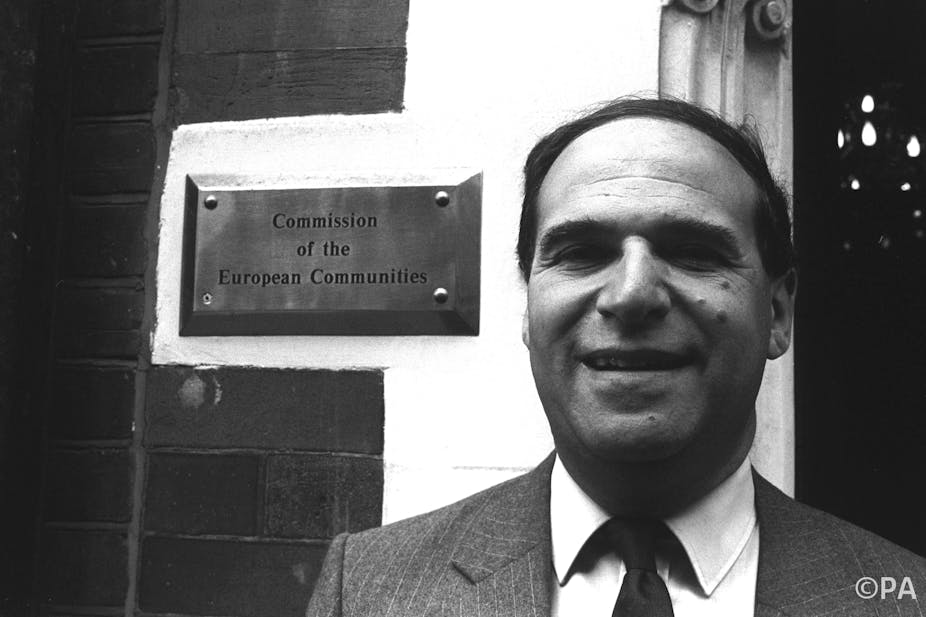Leon Brittan, who has died at the age of 75, was a fervent, and frequently effective, advocate of neo-liberal policies and institutional change. This reputation was earned first as a member of Margaret Thatcher’s UK governments in the 1980s and subsequently as a European commissioner and vice-president of the Commission.
Indeed, at both the national and European scales, considerable evidence could be marshalled that he played a key role in articulating the neo-liberal project. He then applied it to governance. State aid, for example, was outlawed so that European governments could not give unfair advantage to certain companies. And subsidies to agriculture were cut on both sides of the Atlantic, thereby opening the way for progress at the scale of the World Trade Organisation in this important policy domain.
Despite his positions as competition and then trade commissioner between 1989 and 1999, Brittan firmly believed in the necessity of constructing an EU that would do more than exist as a single market. He thought it should also tackle wider economic, social and even environmental issues.
This notably entailed activating the EU’s then dormant competition policy so as to fight against cartels, monopolies and political interference in merger decisions. More transparent markets were one objective, but the aim was also to make the rules of competition in the EU clearer. This would pave the way for explicitly justified public intervention when it was deemed necessary, for example for aid to certain “less-favoured” regions.
As trade commissioner, Brittan attempted to take this perspective to the global scale and oblige the burgeoning World Trade Organisation to include such principles within its practices and remit. But here he was defeated.
Although his vision of what the EU, and indeed global politics, should become was obviously quite different to that of a social democrat such as Jacques Delors (who believed in more state intervention in the economy and society) Brittan’s viewpoint was nevertheless more sophisticated and open to the idea of governmental involvement in some aspects of socio-economic life than that of most neo-liberals.
As his books on Europe and speech-making confirm, Brittan pushed for the EU to become a space within which major political decisions should be taken. When conducting research on the European commissioners of the 1990s in general, what struck me most about Brittan was how he continued to self-define as a politician and saw the Commission itself as a profoundly political arena.
From the way he ran his cabinet, to his relationship with his staff, to his frequent bust-ups with other commissioners, Brittan showed that “moving to Brussels” did not necessarily mean giving up politics. For him, that meant debating about policy and institutional change on the basis of principles. Other commissioners, such as Ray McSharry or Christiane Scrivener, saw themselves more as technocratic “fixers”. They largely shunned public debate and having a media presence.
One may well have disagreed with these values and the changes he argued for on their behalf, but at least Brittan played the political game frankly and with vigour. What would the European Commission give today for a few more like him on both the right and the left?

